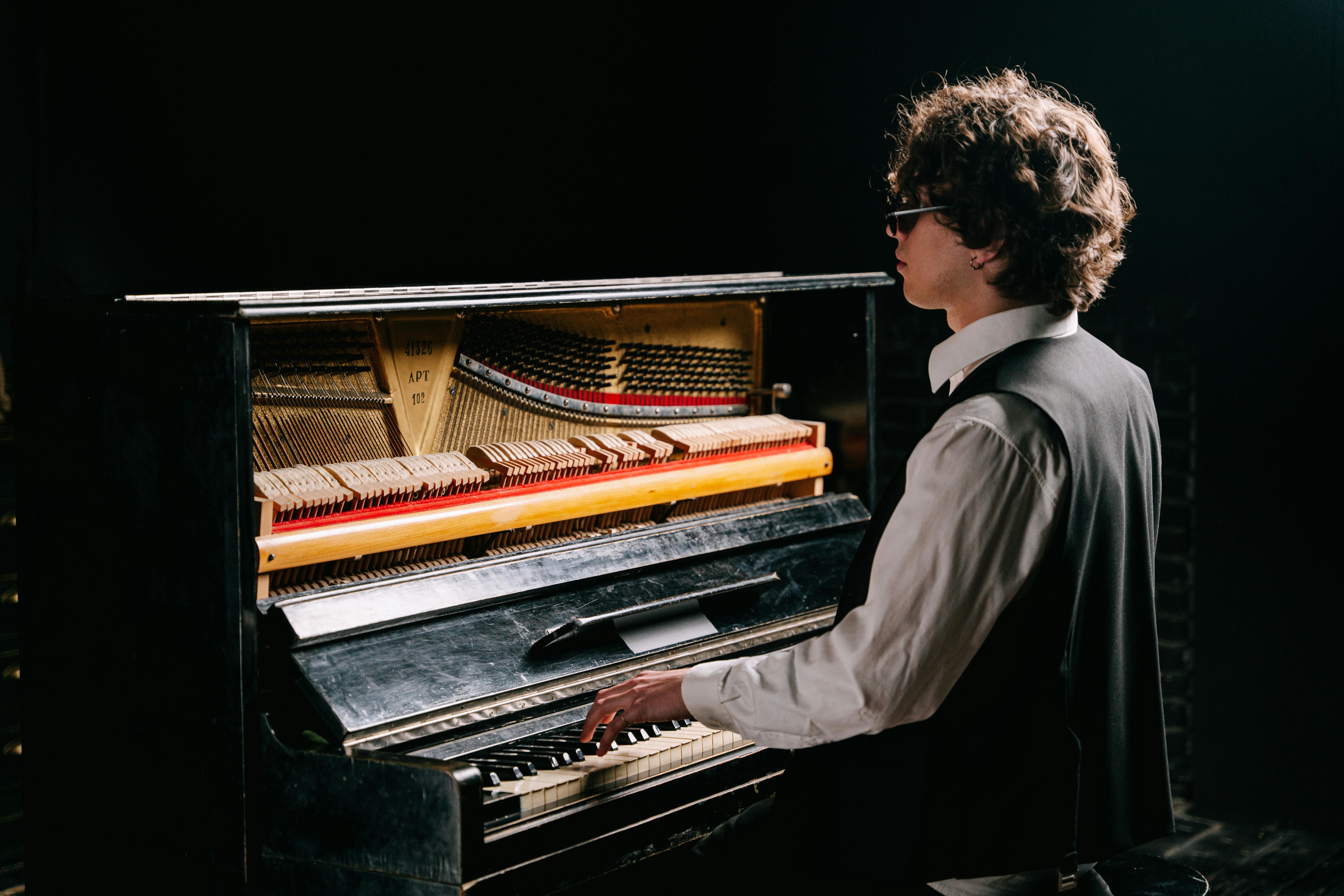
In order to play the piano at your best, mental preparation is an essential skill that entails developing the proper attitude, concentration, and psychological readiness.
Having a confident and upbeat attitude is crucial for excellent piano playing. Confidence in your skills, preparation, and practice can help reduce performance anxiety and improve your overall performance. A Piano Player must develop a mindset that sees difficulties as opportunities for progress and mistakes as teaching moments. Also have a sense of self-belief in your musical ability and see yourself performing with poise and success.
Practice is the Key
Keeping your attention and concentration during practices and performances is essential. Avoid interruptions and provide a setting that encourages focus, such as a quiet, designated practice area. To improve your ability to be present and attentive while playing, practice mindfulness techniques. Teach your mind to remain attentive to the music, paying close attention to each note, each phrase, and the musical aim. You will be able to perform with higher precision and musicality if you can focus for long periods of time.
In order to be confident on your playing, you need to practice, practice and practice until you mastered the song that you’ll be playing. There’s a difficult part of course, you need to play it slow first then slowly add some speed until the right tempo. Also memorize each melody and the chords from the start like a stanza for example. But don’t just memorize. Feel the song as well. Until you’re good with that, you can proceed to the next part. if you’re good with the next part, try it with the one you first practiced until the latest part that you practiced. Repeat the process until you finished the whole song. If you can do it in a day, that is good. If not, just plan your practice schedule until you complete the whole song.
You can affirm yourself that you can do it. It can help you maintain and boost your self-confidence. If you’re having trouble or feel overburdened, don’t be afraid to ask for help from others. Discuss your worries and challenges with your piano teacher or other musicians. They can provide direction, criticism, and support.
Test Rehearsal
You can use this technique to get used of the people. Start by performing in front of friends, family or small group of people to help you assess your playing live. You can also ask for feedbacks on them on how you look while playing, if you’re stiff, then you can take note of that when performing live.
You may also try to record yourself if no one’s around. Act like it’s your D-day. Do your best, continue playing even there are mistakes. You can make them as much as you like because it is only a mock performance. As you watch your video, you can see if you have some mistakes to correct and also some parts to improve like posture or positioning.
You can also have a mental rehearsal. Close your eyes and see yourself playing with assurance, accuracy, and musicality before you practice or perform. Visualize your physical experiences, the sound of the music, and the audience members’ enthusiastic reactions. This mental practice aids in familiarization, improves muscle memory, and supports successful performance results. Utilizing visualization techniques on a regular basis will help you concentrate better and feel more confident when it comes time to perfomance. This is also applicable on the performance day.
On the Performance Day
Breathe in, set a calm mind before going onstage. If you’re still overwhelmed with the amount of people watching you, you just don’t mind them and play like you’re usually do. Focus on the music. You can also look for the supporters that are watching like your family or friends. As they support you, you can bring back by doing what you practice on stage.
Focus and concentration is more needed on this point. Mind over matter. Don’t get distracted, just do what you practice. Do your best effort. Some people are perfectionist that they feel bad when they make mistakes. It is not bad of an attitude at all but if you fail to do a part, continue playing, focus on what’s next. Because if you get distracted in one mistake, it can affect the whole performance so continue.
Remember you’ve practice well enough to perform it on stage in front of people. Learn from your mistakes and charge it to experience on the next performance. There’s this feeling that when you done what you’ve practice and performed it well, it is very satisfying. Not only satisfying but you hunger for more. And that is the fire of passion. If you frequently play live, you will get used to the stage fright and more relaxed.
Overall
Whether your solo or with a band, you have to play your best and not worry about the anxiety of playing in front of many people. Being emotionally connected to the music is essential for giving an engaging performance because music is an expression form. Practice not only to memorize, but to feel the song. Don’t get me wrong, I still have jitters even now when performing live. Just remember the more you practice properly, the more you can get confident with your playing.

